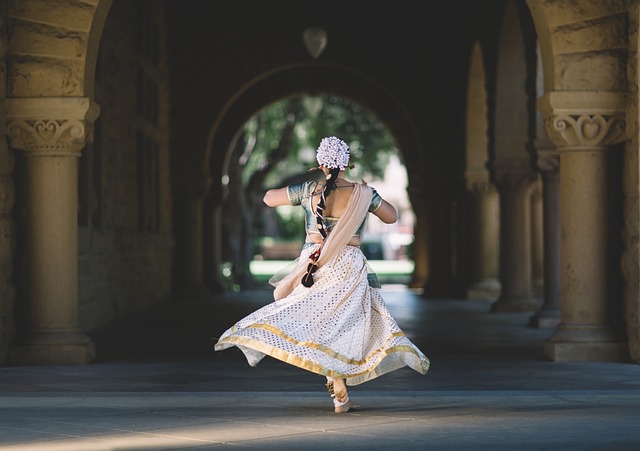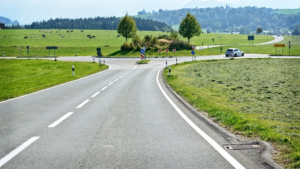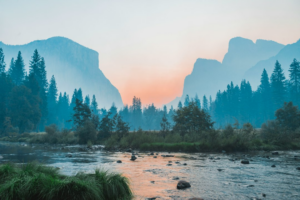
Welcome to Foreign Policy’s South Asia Brief.
The highlights this week: India’s ruling Bharatiya Janata Party sees mixed results in state elections, the Islamic State claims an attack against a Pakistani diplomat in Kabul, and Apple explores relocating some production from China to India.
If you would like to receive South Asia Brief in your inbox every Thursday, please sign up here.
BJP Sees Historic Win, Narrow Loss
India’s ruling Bharatiya Janata Party (BJP) won a landslide state election in Gujarat this week but stumbled in another in Himachal Pradesh, conceding defeat after a close race. The two state elections were seen as a barometer of the BJP’s popularity—along with that of Indian Prime Minister Narendra Modi—before national elections in 2024.
The BJP made history in its western bastion of Gujarat, where Modi served as chief minister before becoming premier. The party won a seventh consecutive term in the state and was projected to set a new record for the number of seats won. The BJP’s performance there was a contrast with 2017, when the party won its fewest number of seats in the state legislature since taking over Gujarat’s government in 1995. This year’s result may reflect Modi’s dominance.
Meanwhile, the BJP sought to win reelection in Himachal Pradesh—something that no party has accomplished in the Himalayan state since 1985. The ruling party historically lacks clout there, and it faced fierce anti-incumbent sentiment. This year, the BJP faced a similar challenge in Uttar Pradesh and managed to win reelection. Despite exit polls suggesting the BJP would succeed in Himachal Pradesh, the Indian National Congress, the main opposition party, triumphed.
This week’s state elections offer three major takeaways. First, Modi’s political power remains formidable, but it has shown some vulnerability. The prime minister campaigned heavily in both Gujarat and Himachal Pradesh, making each election about himself as much as about the BJP. He took nothing for granted on his home turf of Gujarat, campaigning for five hours across 50 kilometers (or 31 miles) on Dec. 1 alone.
However, his nearly two dozen rallies in Himachal Pradesh were not enough to avert defeat. Ahead of the elections, Modi had wielded strong influence over the BJP to bring rebel parliamentarians into line—including convincing a senior figure to abandon a quest to contest a seat as an independent and return to the party. Despite his interventions, rebels within the party ranks may have contributed to the loss. At one point last month, renegade members faced official BJP candidates in at least 21 of the 68 seats up for grabs in Himachal Pradesh.
Second, Congress has something to show for its attempts to escape its recent downward spiral driven by internal crises and electoral drubbings. This year, Congress elected a new leader, and party scion Rahul Gandhi walked across India to push back against the BJP’s toxic Hindu nationalism. The party at last capitalized on recent BJP stumbles, from the botched COVID-19 response last year to its failures to rein in unemployment. Its feat in Himachal Pradesh is more impressive because of record turnout—giving Congress a robust mandate.
Finally, state elections marked a setback for the Aam Aadmi Party (AAP), which has sought to position itself as a third way between the BJP and Congress. The AAP controls only the state of Punjab, which it wrested from Congress control in elections earlier this year, and the city of New Delhi, its main stronghold. Despite falling short of expectations, the AAP still snared an estimated 15 percent of the vote share in Gujarat.
Gujarat and Himachal Pradesh reflect challenges the BJP faces nationally. Both states have seen large anti-government protests in recent months, mainly over unemployment and rising costs. But the BJP remains indisputably dominant. It now runs 18 of India’s 28 states and had four additional victories this year. After Congress’s victory in Himachal Pradesh, it will likely hold power in only three states. (Several Indian states are controlled by coalitions or regional parties.)
A third BJP term in 2024 looks like a safe prediction in politically volatile South Asia. Modi still enjoys mass appeal: A majority of Indians recently ranked him the country’s most popular premier. The BJP’s loss in Himachal Pradesh looks not like a warning sign but a wake-up call that the party still has work to do, with nearly a dozen state elections looming next year.
For more on Modi and democracy in India, please join my colleague Ravi Agrawal for a discussion with Indian historian Ramachandra Guha on FP Live on Monday, Dec. 12, at 11 a.m. ET (or 9:30 p.m. India time). Register here to join for free.
Islamic State claims attack on Pakistani diplomat. The Islamic State has claimed responsibility for a shooting attack targeting Pakistan’s most senior diplomat in Afghanistan, Ubaid Nizamani, in Kabul last Friday. It said two members of its branch in Afghanistan, the Islamic State-Khorasan, were behind the assassination attempt. An embassy guard was seriously injured but is expected to recover; Nizamani was unhurt. On Monday, a Taliban spokesperson said a foreign member of the Islamic State-Khorasan had been detained in connection with the attack.
Islamabad said Nizamani was walking on the embassy compound when gunmen targeted him from a building nearby. The attack is the second on a foreign embassy in Kabul claimed by the Islamic State in recent months after the Russian Embassy was hit in September. Pakistan and Russia are two of just a small number of countries operating embassies in Kabul since the Taliban’s takeover last year. India partially reopened its facility in June.
Last Friday’s attack will only heighten concerns among Afghanistan’s neighbors about security in Kabul under the Taliban regime and their failure to expel terrorist groups from Afghan soil. The regime has unsuccessfully attempted to target the Islamic State-Khorasan with counterterrorism operations. The United Nations and many regional security analysts believe the Taliban still maintain close ties with al Qaeda, and their refusal to crack down on the Pakistani Taliban—an allied but separate group—has stoked tensions with Pakistan.
India’s first steps with G-20 presidency. India has hit the ground running since taking over leadership of the G-20 on Dec. 1. Last Sunday, it convened so-called sherpa officials—personal representatives for presidents or prime ministers—from the G-20 member states in Udaipur, India, to plot out the group’s agenda. The officials discussed themes that have long been priorities for the bloc as well as for Indian foreign policy: technological transformation, clean energy, multilateralism, and food security, among others.
Modi has said in recent days that he will use India’s G-20 leadership to tackle additional major challenges, such as terrorism and pandemics. He has also called on India’s political parties to unite in efforts to facilitate New Delhi’s work in the role, which runs for a year. There is much riding on the presidency for India, as I wrote last month.
Apple explores its options in India. Apple is reportedly considering relocating some of its production from China to India. The Wall Street Journal reported last week that the technology giant is looking at possible destinations in Asia, including India. On Monday, CNBC reported that Apple executives are “holding ongoing discussions” with Indian authorities about bringing some iPad production to India. The company began producing the iPhone 14 in India this year.
China’s use of surveillance, draconian COVID-19 lockdowns and recent public unrest—including at one of Apple’s biggest iPhone factories—have given the world’s technology giants a reason to diversify their supply chains. The opportunities for India are hard to overstate, and it’s a logical next option. However, analysts warn of obstacles, including the lack of a critical mass of Indian workers with the skills to put together Apple products. New Delhi’s own draconian policies have also caused tensions with Big Tech, which could be a turnoff for investors.
FP’s Most Read This Week
• Sanctions on Russia Are Working. Here’s Why. by Agathe Demarais
• Why Switzerland vs. Serbia Is Really All About Kosovo by Aleks Eror
• China Has India Trapped on Their Disputed Border by Sushant Singh
Pakistan’s blind national cricket team, which was scheduled to travel to India to participate in the T20 World Cup Cricket Tournament for the Blind, announced this week that New Delhi had denied the team’s visas. On Wednesday, Indian media suggested that authorities had changed course and planned to grant the visas. Even if that’s the case, the damage is done: The incident has outraged Pakistanis and many Indians.
Unfortunately, it’s not India’s only recent visa controversy. New Delhi has refused visas to 2,500 Afghan students enrolled in Indian universities who have been stuck in Afghanistan since the Taliban’s takeover in August 2021. In October, Indian External Affairs Minister S. Jaishankar blamed security concerns and visa system inefficiencies. The delay is all the more striking given that India partially reopened its embassy in Kabul in June.
However, Indian citizens face systemic visa issues of their own. In recent weeks, Indian media have noted that the wait time for interviews for two of the most common forms of U.S. visas for Indians—the B-1 tourist and B-2 business, for first-time visitors—is nearly 1,000 days. U.S. officials cite a lack of sufficient staff. It’s not a good look for Washington or New Delhi—two capitals that pride themselves on their cultural diplomacy—to get in the way of people-to-people relations with key partners.



